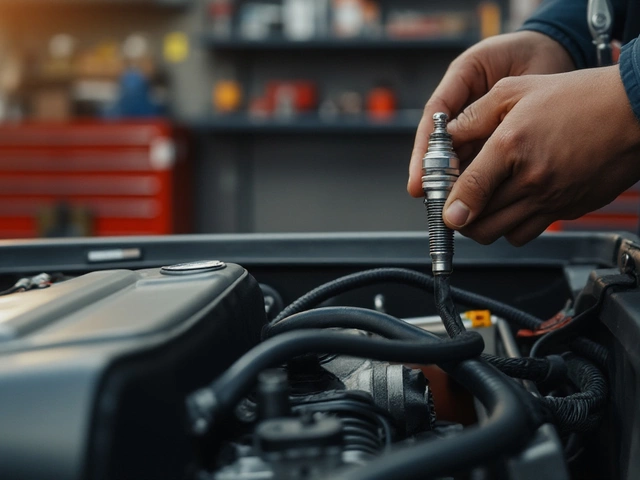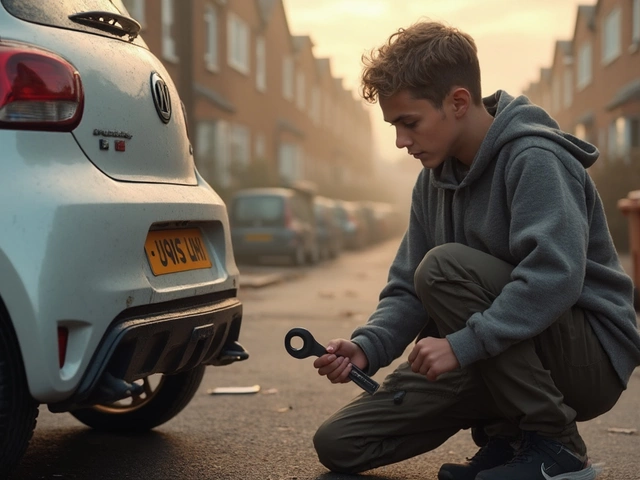Car Repair Time: What to Expect for Common Fixes
When your car starts acting up, the first question is always "how long will this take?" Knowing the typical time frames helps you plan work‑days, arrange rides, and avoid surprise costs. Below we break down the average duration for the most common jobs at a local garage like Northwich Tyres Centre.
Quick Jobs You Can Usually Finish in a Day
Some repairs are fast enough to fit into a single work shift. If you need new air filters, a tyre change, or a brake pad swap, expect the shop to have you back in 1‑2 hours. Air filter replacements are simple – the mechanic pulls the old filter out and slides a new one in. Tyre fitting, including balancing, normally takes about 30‑45 minutes per wheel, so a full set can be done in under two hours. Rear brake pad changes are similar; the caliper is removed, pads are swapped, and the system is bled if necessary.
Medium‑Length Repairs: One to Two Days
Jobs that involve more parts or careful adjustments usually need a full day or overnight. Replacing a clutch, fixing a bent suspension, or addressing a faulty fuel pump fall in this category. A clutch replacement requires removing the transmission, which can take 6‑8 hours depending on the model. Bent suspension components often need realignment and new bushings, adding another few hours. Testing a fuel pump involves pressure checks and possibly replacing related seals, so most shops schedule these for a next‑day pickup.
Another common intermediate task is checking and cleaning a clogged fuel injector. Mechanics will remove the injector, run a flow test, and clean or replace it, typically finishing within a day.
Long‑Term Projects: Over Two Days
Complex issues like severe transmission problems, major engine work, or extensive rust repair can stretch beyond two days. A transmission overhaul may require the entire drivetrain to be taken apart, inspected, and rebuilt – often a 2‑3 day process. If your car has a burnt clutch and a failing gearbox, the shop might combine both repairs, extending the timeline.
Rust repair on alloy wheels can also be time‑consuming, especially if the wheel needs straightening, sanding, and repainting. Expect at least three days for a proper finish.
Factors That Influence Repair Time
Several things can speed up or slow down a job:
- Parts availability: If a specific brake pad or clutch kit is in stock, the work moves quickly. Ordering a rare part can add days.
- Vehicle make and model: Some cars have tighter engine bays, making access harder and increasing labor time.
- Workload at the garage: Busy periods, like after a holiday, may lengthen waiting times.
- Diagnostic clarity: When the problem is obvious (e.g., a cracked brake line), the fix is faster than when multiple systems need testing.
Ask the garage for a realistic estimate before they start. A good shop will break down labor hours, parts needed, and any potential delays.
Tips to Keep Your Car Repair Time Short
Here are simple steps you can take:
- Schedule an appointment instead of walking in. It reserves a slot and guarantees the needed parts are ready.
- Keep up with regular maintenance – oil changes, filter swaps, and tyre rotations reduce unexpected breakdowns.
- When you notice a problem (odd noises, warning lights), get it checked early. Early diagnosis often means a quicker fix.
- Provide clear information about symptoms. The more details you give, the faster the technician can pinpoint the issue.
Understanding typical car repair times helps you stay in control and reduces stress. Whether it’s a quick tyre change or a multi‑day clutch overhaul, knowing what to expect lets you plan ahead and keep your wheels turning.
 18 April 2025
18 April 2025
How Long Does It Take to Fix a Fuel Pump? Real-World Timelines and Tips
Not sure how much time you'll lose waiting on a fuel pump fix? This guide clears up how long it actually takes to replace or repair a fuel pump, breaking down each step and what can delay or speed things up. Learn about the right tools, potential hiccups, and practical steps you can take to make the fix easier. Whether you're thinking about doing it yourself or leaving it to the pros, this article covers real-time estimates and insider tips to dodge surprises. Save money, avoid headaches, and get your car running again faster.
Latest Posts
-

Which Part of My Suspension is Bad? A Practical Guide
-

Beyond Ignition: The Full Role of Spark Plugs in Your Engine
-

Will Muffler Delete Hurt Engine? Real Facts You Need to Know
-

Windshield Wipers vs Windscreen Wipers: What's the Real Difference?
-

Loudest Exhaust Types: A Deep Dive into Decibels and Roar
Tags
- car maintenance
- engine oil
- spark plugs
- brake pads
- engine performance
- vehicle maintenance
- spark plug replacement
- windshield wipers
- fuel pump
- suspension parts
- clutch replacement
- oil change
- clutch kit
- car suspension
- car performance
- air filters
- car radiator
- exhaust systems
- fuel pump replacement
- engine misfire

0